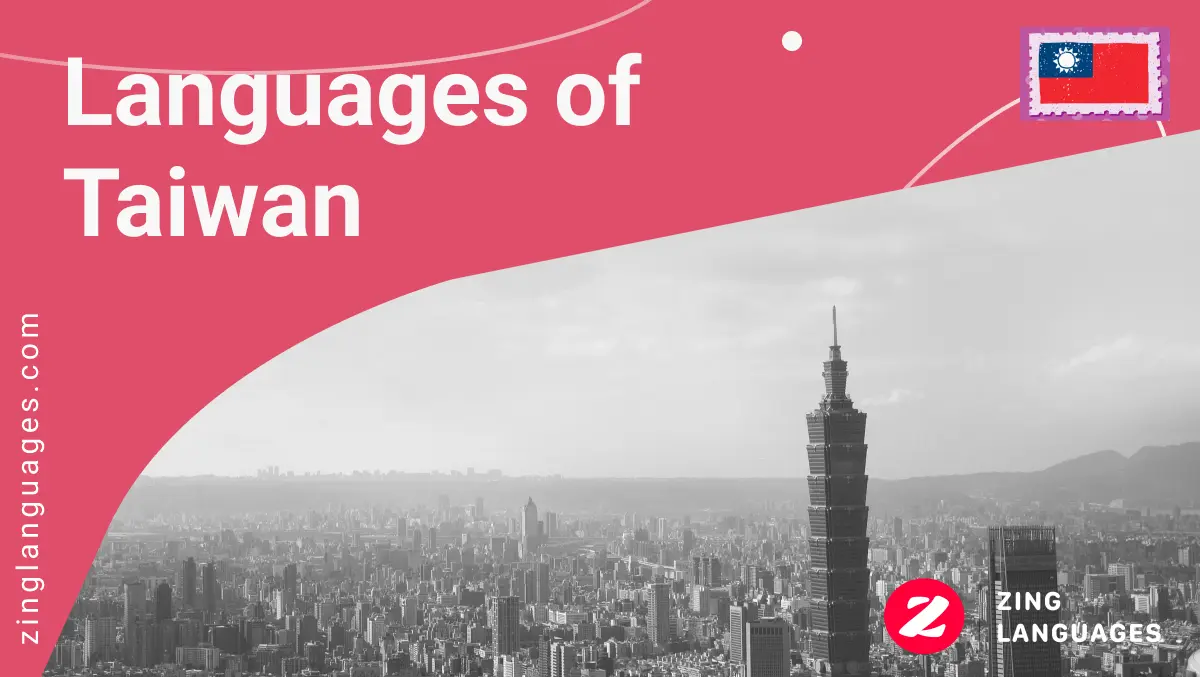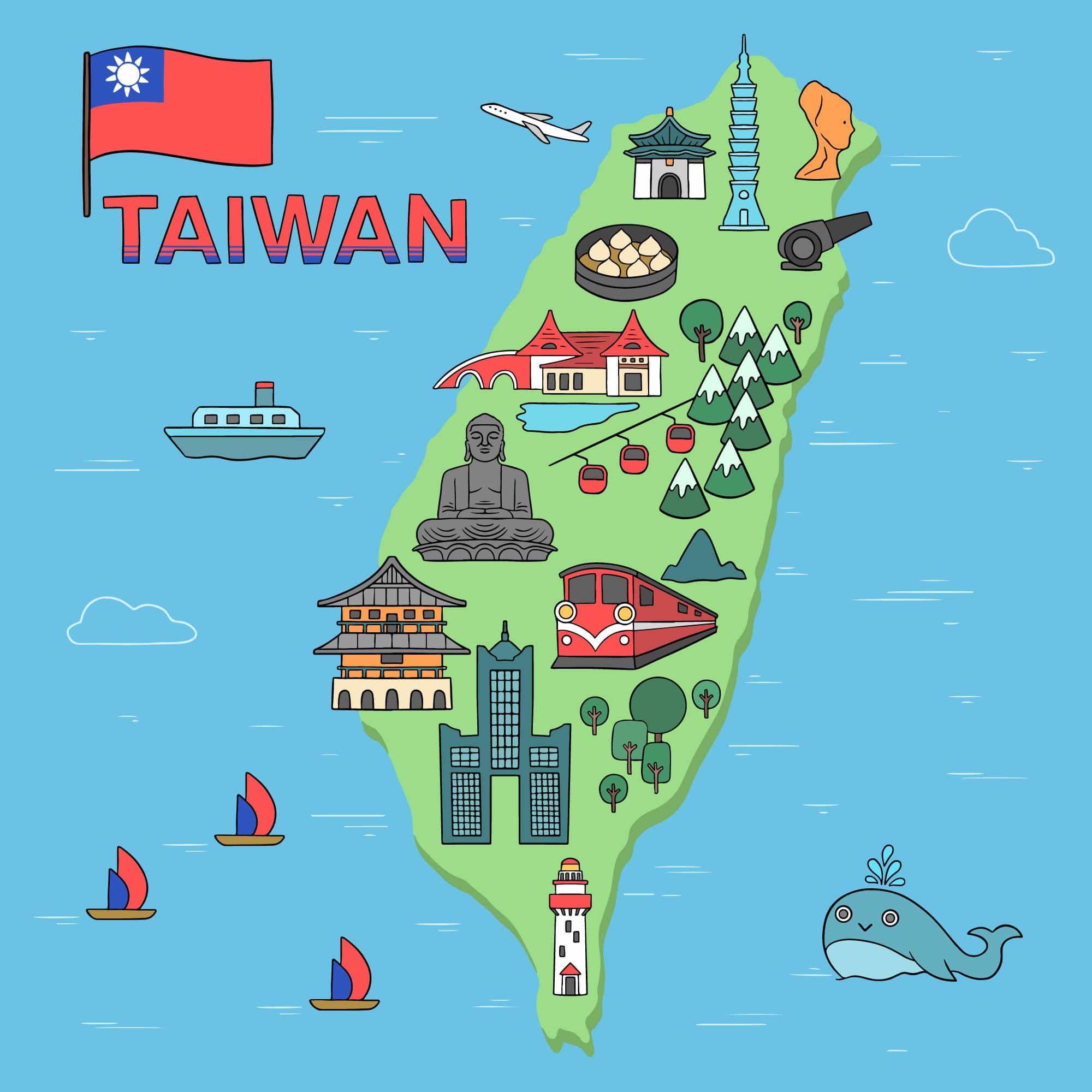What language is spoken in taiwan – As we delve into the fascinating tapestry of languages spoken in Taiwan, we embark on a journey that unravels the intricate interplay of history, culture, and linguistic diversity. Mandarin Chinese and Taiwanese Hokkien, the two official languages, stand as cornerstones of the nation’s linguistic landscape, while a myriad of other tongues weave a vibrant linguistic tapestry.
From the bustling streets of Taipei to the serene countryside, languages dance and intertwine, shaping the cultural identity and societal fabric of Taiwan. This comprehensive exploration will illuminate the rich linguistic heritage of this captivating island nation, shedding light on the languages that have shaped its past and continue to shape its future.
Official Languages of Taiwan
Taiwan has two official languages: Mandarin Chinese and Taiwanese Hokkien.
Mandarin Chinese is the national language of Taiwan and is used in government, education, and media. It was established as the official language in 1945 after the Kuomintang government of the Republic of China relocated to Taiwan following the Chinese Civil War.
Taiwanese Hokkien is a Southern Min dialect spoken by the majority of the population of Taiwan. It is used in everyday conversation, local government, and traditional media.
Examples of Usage
- Mandarin Chinese is used in official government documents, speeches, and announcements.
- Taiwanese Hokkien is used in local government meetings, community events, and traditional operas.
- Both languages are used in education, with Mandarin Chinese being the primary language of instruction and Taiwanese Hokkien being taught as a subject.
Other Languages Spoken in Taiwan
In addition to Mandarin and Taiwanese, several other languages are spoken in Taiwan. These languages reflect the diverse cultural and historical influences that have shaped the island’s population.
Hakka
Hakka is a Chinese dialect spoken by approximately 4.5% of Taiwan’s population. It is primarily spoken in the northern and central parts of the island, particularly in the counties of Hsinchu, Miaoli, and Taoyuan.
Austronesian Languages
Taiwan is home to a number of Austronesian languages, which are spoken by the indigenous peoples of the island. These languages include Amis, Atayal, Bunun, Paiwan, and Puyuma. They are spoken in various parts of Taiwan, including the eastern coast, central mountains, and southern plains.
Japanese
Japanese was introduced to Taiwan during the Japanese colonial period (1895-1945) and remains spoken by a small percentage of the population, particularly among the elderly. It is most commonly found in urban areas such as Taipei and Kaohsiung.
English
English is widely taught in schools in Taiwan and is used in business, education, and tourism. It is becoming increasingly common as a second language among younger generations.
Other Minor Languages
Other minor languages spoken in Taiwan include Korean, Vietnamese, and Thai, reflecting the presence of foreign workers and immigrants.
Language Diversity in Taiwan

Taiwan is home to a remarkable diversity of languages, reflecting its rich history and cultural heritage. This linguistic landscape has been shaped by a complex interplay of factors, including geographical isolation, indigenous populations, colonial influences, and modern immigration.
The most widely spoken language in Taiwan is Mandarin Chinese, which serves as the official language. However, a significant number of other languages are also spoken, including:
- Hokkien (also known as Taiwanese): A dialect of Southern Min Chinese spoken by the majority of the population.
- Hakka: Another dialect of Chinese spoken by a large minority.
- Formosan languages: A group of Austronesian languages spoken by the indigenous peoples of Taiwan.
- Japanese: A legacy of Japanese colonial rule.
- English: A result of globalization and international trade.
Impact of Language Diversity on Taiwanese Society
The language diversity in Taiwan has had a profound impact on Taiwanese society. It has contributed to the island’s cultural richness and has fostered a sense of cultural identity among the different ethnic groups.
However, language diversity can also pose challenges. Language barriers can hinder communication and understanding between different groups, and can sometimes lead to social and economic disparities.
The government of Taiwan has taken steps to promote language diversity and foster linguistic harmony. The Ministry of Education has implemented policies to support the teaching of indigenous languages and has established bilingual education programs in schools.
Language Policy in Taiwan

The Taiwanese government’s language policy aims to promote the preservation and development of the country’s diverse languages while fostering national unity and international communication. The policy recognizes the importance of the Taiwanese Hokkien, Hakka, and indigenous languages as cultural assets and essential components of the country’s identity.
The goals of the language policy include promoting the use of Mandarin as the official language while also protecting and revitalizing the other languages spoken in Taiwan. The government provides support for language education, research, and cultural preservation efforts. Additionally, it encourages the use of multilingualism in various domains, such as education, media, and government.
Challenges and Successes
Implementing the language policy in Taiwan has presented challenges, such as balancing the promotion of Mandarin with the preservation of other languages. The government has addressed these challenges through initiatives such as the Indigenous Language Development Act, which provides support for indigenous language education and cultural revitalization.
The policy has also achieved notable successes. The use of Mandarin has increased significantly in recent decades, while the government’s support has helped preserve and revitalize the other languages spoken in Taiwan. The country has a vibrant multilingual landscape, with a growing number of people able to communicate in multiple languages.
Future of Languages in Taiwan

The future of languages in Taiwan is complex and uncertain. The island has a long history of linguistic diversity, with over 20 indigenous languages and a significant number of immigrant languages spoken. However, the dominance of Mandarin Chinese as the official language has led to a decline in the use of other languages.There
are several factors that could affect the future of languages in Taiwan. One is the increasing globalization of the island. As Taiwan becomes more connected to the rest of the world, the demand for English and other international languages is likely to increase.
This could lead to a further decline in the use of indigenous and immigrant languages.Another factor that could affect the future of languages in Taiwan is the changing demographics of the island. The population of Taiwan is aging, and the number of young people who speak indigenous and immigrant languages is declining.
This could lead to a further loss of these languages.However, there are also some positive signs for the future of languages in Taiwan. The government has recently taken steps to promote the use of indigenous languages. There are also a number of grassroots organizations working to revitalize indigenous and immigrant languages.
These efforts could help to ensure that the linguistic diversity of Taiwan is preserved for future generations.
Potential Changes in Language Use and Diversity
The future of languages in Taiwan is likely to be shaped by a number of factors, including:
- The increasing globalization of the island.
- The changing demographics of the island.
- The government’s language policy.
- The efforts of grassroots organizations.
It is difficult to predict exactly how these factors will affect the future of languages in Taiwan. However, it is likely that the island will continue to be a linguistically diverse society. Mandarin Chinese will likely remain the dominant language, but other languages will continue to be spoken and used.
The future of languages in Taiwan is uncertain, but it is likely to be shaped by a complex interplay of factors.
Implications of These Changes for Taiwanese Society, What language is spoken in taiwan
The changes in language use and diversity in Taiwan could have a number of implications for Taiwanese society. For example, the decline of indigenous and immigrant languages could lead to a loss of cultural diversity. This could have a negative impact on the social cohesion of Taiwan.On
the other hand, the increasing use of English and other international languages could help to improve Taiwan’s economic competitiveness. This could lead to a more prosperous and vibrant society.Ultimately, the implications of the changes in language use and diversity in Taiwan will depend on how these changes are managed.
If the government and other stakeholders work together to promote linguistic diversity, the island can continue to be a linguistically rich and vibrant society.
Final Review: What Language Is Spoken In Taiwan
In the tapestry of Taiwan’s linguistic landscape, we find a vibrant symphony of languages, each with its own unique history, significance, and contribution to the nation’s cultural heritage. As the future unfolds, it will be fascinating to witness the evolution of this linguistic diversity, the interplay of languages, and their enduring impact on Taiwanese society.
The exploration of what languages are spoken in Taiwan has unveiled a rich and dynamic linguistic landscape, where languages intertwine and shape the nation’s cultural identity. It is a testament to the power of language to connect, divide, and ultimately enrich the human experience.
FAQ Overview
What are the two official languages of Taiwan?
Mandarin Chinese and Taiwanese Hokkien
What other languages are spoken in Taiwan?
Hakka, Formosan languages, and various immigrant languages
What factors have contributed to Taiwan’s language diversity?
Historical migrations, cultural influences, and geographical isolation